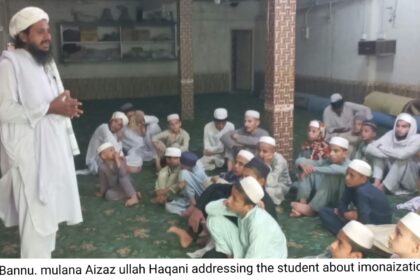Gender Mainstreaming Committee Slams Incomplete Land Data and Failing Laws
Nadeem Tanoli
Islamabad: The National Assembly’s Special Committee on Gender Mainstreaming has raised alarm over the deep institutional, legal, and cultural barriers that continue to deny Pakistani women their rightful share in property ownership. During an extensive review of women’s property rights, the committee found massive gaps in credible data, weak enforcement of protective laws, and enduring social pressures that prevent women from claiming their inheritance.
The discussion began with the core issue of missing and unreliable data. The Pakistan Bureau of Statistics (PBS) presented figures from its 2019–20 Pakistan Social and Living Standards Measurement (PSLM) survey, showing that only 2.5% of households in Pakistan are exclusively owned by women, and 7.5% jointly owned by men and women. Committee members, particularly MNA Saadia Abbasi, questioned the credibility of these statistics, calling them misleading because they fail to account for inheritance-based ownership — a major determinant of women’s access to property.
The committee also noted major discrepancies between PBS survey data and administrative figures, such as women’s bank account ownership. PBS reported only 8.43%, while the State Bank of Pakistan’s data placed it at 37%. This inconsistency, members argued, exposes the limitations of survey-based data collection and the need for verified, administrative sources.
The committee examined provincial data from Sindh and Punjab, highlighting a sharp contrast in progress. In Sindh, the Secretary of the Board of Revenue presented figures from the Land Administration and Revenue Management Information System (LARMIS), revealing that out of 6.97 million registered landowners, 1.25 million — or 21% — are women. This percentage, though encouraging, was acknowledged to be incomplete as it excludes urban properties such as houses and plots registered with sub-registrars.
The Sindh government’s housing initiative granting two million new homes to flood-affected families exclusively under women’s names was commended as a transformative step toward gender equity in property ownership. Meanwhile, Punjab’s Board of Revenue failed to present gender-based land data, citing short notice, but assured the committee it could provide accurate figures within a week given its fully digitized record system.
The committee also discussed legal and enforcement challenges. The Punjab Enforcement of Women Property Rights Act 2021, initially hailed as a landmark reform, enabled the provincial Ombudsperson to resolve over 5,000 cases and restore more than 6,000 kanals of property to women. However, the Lahore High Court suspended the law, declaring it “ultra vires” for creating a “parallel judicial regime.” As a result, all proceedings under the act were halted amid contempt petitions, leaving thousands of women’s property cases unresolved.
A positive development highlighted by MNA Saadia Abbasi was the NADRA succession certificate system, which uses verified family trees to issue inheritance certificates. This system has significantly reduced fraud and denial of inheritance to female heirs by ensuring that no property transfer or mutation can occur without recognizing all legal heirs.
Committee members also emphasized that social norms remain a major obstacle. Many women are pressured not to claim their rightful shares, fearing family backlash or social exclusion. Some are deceived into signing documents that unknowingly forfeit their inheritance. Lack of awareness and limited access to legal resources further perpetuate gender disparities.
The committee concluded with a clear set of directives: Punjab must provide comprehensive gender-based land ownership data, and Sindh should supplement its LARMIS figures with urban records to achieve a complete mapping of property titles. PBS was instructed to collaborate with provincial authorities to shift from unreliable survey data to verified administrative records. The committee also endorsed recommendations by the Sindh Human Rights Commission (SHRC), including gender-based mapping of land, integrating gender markers in NADRA and land records, and promoting joint property titling.
The Law and Justice Commission was asked to present a detailed analysis of legal loopholes hindering women’s property rights enforcement. The committee’s overall message was clear: without credible data, consistent legal protection, and cultural transformation, Pakistani women will continue to be excluded from economic empowerment through property ownership.











